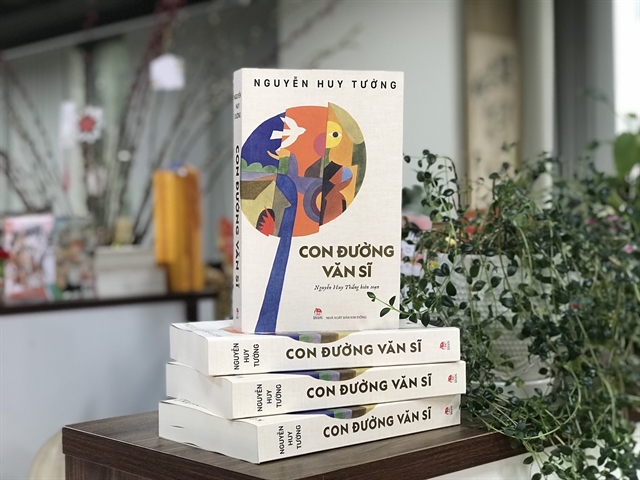 Life & Style
Life & Style

 |
| A collection of late writer Nguyễn Huy Tưởng's diary has been launched by Kim Đồng Publishing House to celebrate his 112th birthday anniversary. — Photo courtesy of Kim Đồng Publishing House |
HÀ NỘI — A new book launched by Kim Đồng Publishing House offers bookworms a chance to know more about late writer Nguyễn Huy Tưởng.
Nguyễn Huy Tưởng (1912-1960) was a popular writer and playwright responsible for masterpieces including Vũ Như Tô, Đêm Hội Long Trì (Long Trì Festive Night), Lá Cờ Thêu Sáu Chữ Vàng (The Flag Embroidered with Six Golden Words) and Sống Mãi Với Thủ Đô (Live Forever With the Capital).
The writer was one of the first people to be awarded Hồ Chí Minh Prize and State Award for Literature and Arts.
The book entitled Con Đường Văn Sĩ (The Writer's Path) is Tưởng's diary from 1938 to the first half of 1945 and is compiled by his son Nguyễn Huy Thắng to commemorate the writer's 112th birthday anniversary.
"My father died when I was five years old so I almost don't have memories about him," said Thắng. "The diary helps me to understand him."
Tưởng came to writing quite late and in his youth participated in patriotic movements in Hải Phòng to spread the national language.
In 1943, he joined the secret National Salvation Culture group. In August 1945, he was sent to attend the National Congress in Tân Trào, then when the August Revolution succeeded, he became a key leader of the National Salvation Cultural Association and a delegate to the 1st National Assembly in 1946.
After 1954, he was a founding member of the Việt Nam Writers Association and became a member of the association's executive committee.
During those young years, he channeled his enthusiasm and desire to contribute, while suffering from anxiety about how best to express those emotions, into a diary.
The diary pages written during the years 1938 through to the August Revolution illuminate the path of a civil servant at the Tax Department working towards becoming a writer.
In the book there are also sketches about a generation of pre-war writers and historical details from the August Revolution of the urban intellectuals.
The writer did not expect that one day his diary would be published, so the writings are innocent and unfliltered, according to Ph.D in Literature scholar Đỗ Thanh Nga.
"The diary is therefore attractive because it is concise but vivid," Nga said. "With realistic and emotional details, the diary pages are valuable documents about social life, civil servant life and partly outline the picture of Vietnamese literature before the August Revolution."
Tưởng died of cancer in 1960 in Hà Nội. In his 20-year career, he left a huge literary legacy including six plays, five novels and nearly ten literary works for children and others. — VNS




